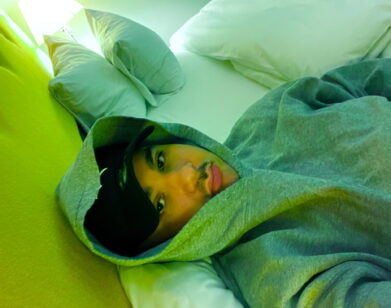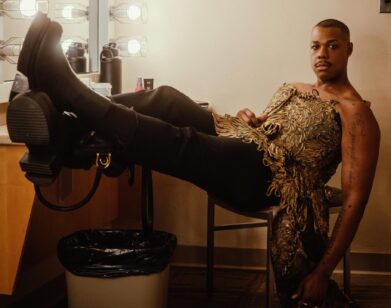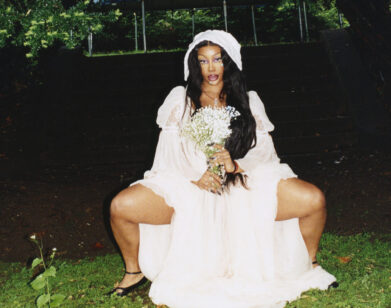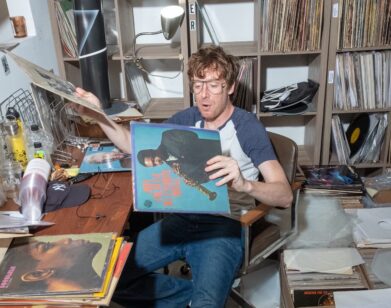Senior Project: Neon Gold Records
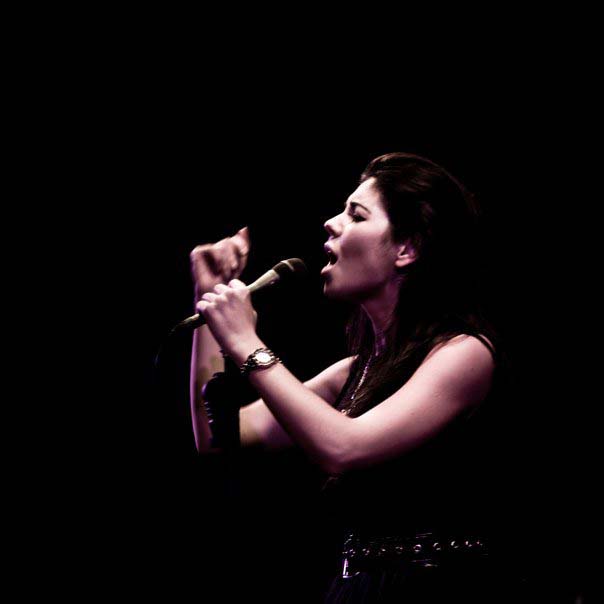
Derek Davies and Lizzy Plapinger aren’t your garden variety indie music fans. While most of us will digest next week’s SXSW music festival in Austin through the Hype Machine filter, they will be among those dictating it. As the co-founders of nascent NYC-based boutique label Neon Gold Records, the two will curate their first Austin showcase on March 18th, another milestone in a series of recent victories for their two-year old label, known best for launching Passion Pit in 2008. Not bad for a pair of college seniors. (PHOTO: MARINA & THE DIAMONDS; ZAC SEBASTIAN)
Given their ages and pedigree (Davies, 22, is a film major at NYU; Plapinger, 21, majors in media studies “with a focus on music” at Vassar), skeptics might assume Neon Gold is a hip undergraduate vanity project that caters to the current whims of the Brooklyn-based art and music scene. They’d be mistaken: if anything, Neon Gold reverses the art/noise pop paradigm and is ushering literal, unironic “Pop” back into indie (and mainstream) acceptance. It’s a zeitgeist-clinching formula that has proven especially successful in Europe, where Marina & The Diamonds and Ellie Goulding–two British female pop solo artists launched by Neon Gold–have charted very well. Stateside welcome seems just around the corner, too: Monday night, Neon Gold, alongside UK tastemaker Popjustice, co-hosted Marina & The Diamonds’ sold-out debut US show at Brookyn’s Bell House.
COLLEEN NIKA: What is the Neon Gold story?
DEREK DAVIES: Lizzy and I have been friends since we were kids. We used to vacation ever summer at Martha’s Vineyard together. So, we sort of grew up together. And our mutual interest in music defined our friendship.
LIZZY PLAPINGER: We always spoke about setting up a label, even as teenagers, but we planned to wait til after we graduated college. Then, in February 2008, in the middle of sophomore year, we decided we didn‘t want to wait.
DAVIES: So, we got the ball rolling. In September 2008, we launched our first 7″ single: Passion Pit’s “Sleepyhead”. It sold out instantly. To date, we’ve already released fifteen singles.
NIKA: How did you convince artists to let you release their material?
DAVIES: We were good about getting our name out quickly. We’d established a decent list of media contacts in our previous work–Lizzy interned at Vice and I ran goodweatherforairstrikes.com–so that helped facilitate the process. Marina [of Marina & The Diamonds] approached us to release her first limited edition single “Obsessions.” She was really amazing about getting our name out there.
COLLEEN NIKA: Why is Neon Gold’s ethos unique?
DAVIES: We’re trying to revive interest in a singles-driven music culture in the States. I’ve always been kind of an Anglophile and, growing up, I really appreciated the singles-based music culture there that doesn’t exist here. We really wanted to revive that.
PLAPINGER: We wanted to celebrate the idea of the perfect single. The pro-pop aesthetic we’re now associated with almost happened by accident, but we welcome it.
NIKA: What have been some of your own challenges? How did you swing Neon Gold financially?
DAVIES: We were smart and saved a lot of money before we started Neon Gold. We basically worked summer jobs for two years straight, split the set-up costs 50/50, and are lucky, as students, that we don’t need to rely on the company for profit just yet. We don’t really make money, but we don’t really lose money, either.
PLAPINGER: The idea was to spend two years building the brand while we finished up school. The idea was that by the time we graduate, the company will be mature enough to make money–and that’s about to happen.
NIKA: How do you juggle your school schedules with label duties?
DAVIES: Extremely tenuously.
PLAPINGER: We generally have been lucky. I had a professor let me finish a final last semester while I was in London. What she didn’t know was that I was finishing it at a music festival!

